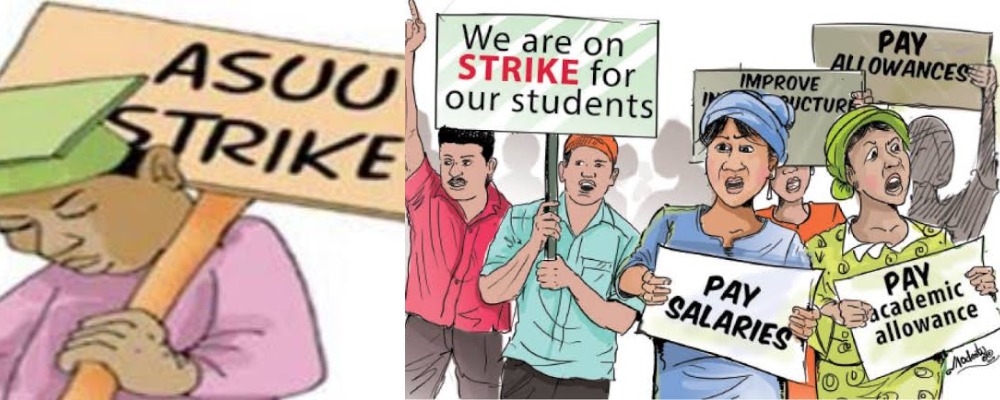The Academic Staff Union of Universities on Monday, 29th of August announced the indefinite extension of its ongoing strike action and this just sums up the myriads of problems bedevilling important sectors in Nigeria. ASUU commenced its ongoing strike on February 14, 2022, after the Federal Government refused to meet some of its demands including, the release of revitalisation funds for universities, renegotiation of the 2009 FGN/ASUU agreement, release of earned allowances for university lecturers, and deployment of the UTAS payment platform for the payment of salaries and allowances of university lecturers.

Indubitably, the victims of this incessant strike action by the union are the students and that must have accounted for the swinging public sentiments. In times past, ASUU has always enjoyed the sympathy of the masses but the control of the narrative by the federal government has made ASUU the villain. That should not be the case. OduNews believes ASUU is fighting the right cause and it has been consistent with its demands over the years. It is the successive governments that have failed to honour agreements reached between the two which has resulted in the strike lingering on. The successive Nigerian governments have all paid mere lip service to the demands of ASUU. The Federal government has set up different committees to liaise with the union but has failed to even honour its proposals. This points to just one fact; the Nigerian government does not prioritise the educational sector. What they fail to understand is that the sector is the glue holding every other aspect of the economy. A country that fails to properly educate its people will face enormous problems which would be spearheaded by those it fails to educate.
Our grouse at OduNews is not with the workers’ union. It is the federal government. We believe ASUU’s actions are borne out of genuine concerns. The countenance and rhetoric of the Ministers of Labour and Employment, Chris Ngige, and the Minister of Education, Mallam Adamu Adamu, have stamped the fact that this present administration is not serious about resolving the ongoing strike. The government has resolved to cheap blackmail by distorting ASUU’s grievances to buy public sympathy. Mallam Adamu Adamu foregrounded ASUU’s demands of salary payment while on strike and made it seem as if that is the only reason The union has insisted on not calling off the strike. At the end of ASUU’s meeting on Monday 29th August, the union noted that the government is yet to concretely accede to any of its demands. The government has been acting in circles- calling for a meeting, setting up a committee, blackmailing ASUU to call off the strike and agreeing to act on their grievances. This has been the case since 2013. Eventually, nothing practical will be done. That vicious circle is what ASUU is trying to avoid by extending the strike. Let the actions begin and see the university lecturers rush back to class.
It is commendable that various stakeholders have tried to resolve this age-old crisis but the onus lies on the federal government to do what is right. ASUU is not demanding N1.3 trillion as it is being claimed by the federal government, it demands a truthful commitment that any agreed funds will be released to the institutions every year. The government has reneged on its agreement with ASUU over the years and it would be unwise for ASUU to believe the government will honour its agreement this time. The government needs to be sincere in its negotiations with ASUU if it wants a lasting solution to this strike. Allowing the strike to linger now appears to be a political tool. It has always been at the centre of many campaigns – the oppositions sympathise with ASUU until they become those in the corridors of power. Then the language changes!
Our submission at OduNews is that the union keep up with its agitation and sees to its demands being met by the government. If it succumbs to the whims and caprices of the political class at this time, its 6-months old strike would amount to nothing. We do not want the tertiary institutions to become what the public primary and secondary schools have been in many parts of the country. This same negligent attitude made many government schools unpalatable to the populace. ASUU should insist on its demands and the government must act SINCERELY.


Comments are closed.